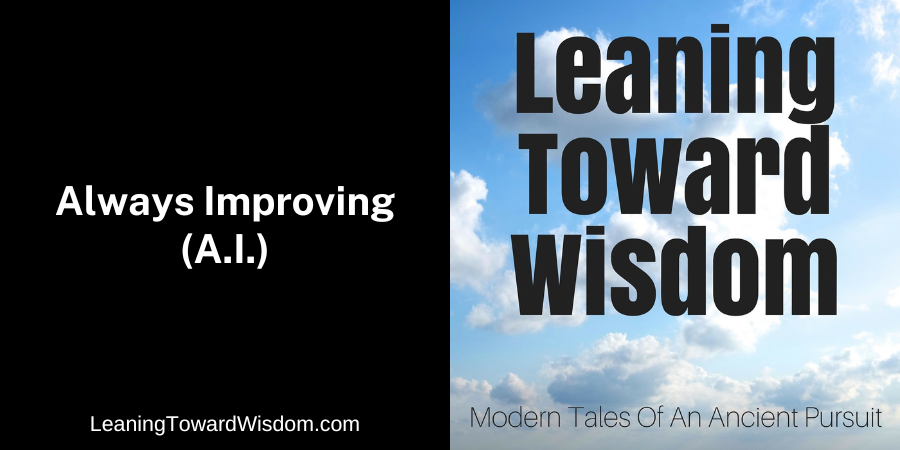Podcast: Play in new window | Download (Duration: 26:05 — 23.9MB)
Subscribe: Apple Podcasts | Spotify | iHeartRadio | Email | RSS | More
There are about 9.84 BILLION search results for A.I. – which we mostly think stands for “artificial intelligence.” ChatGPT is the latest, greatest, coolest, trickest A.I. It is pretty spectacular. For mere mortals like me, I don’t know how A.I. improvement could even be measured, but I do know there’s a data gap that is a constraint. A.I. needs high-integrity data.
I’m intrigued by artificial intelligence, but I’m far more obsessed with a different A.I.
Always Improving
“Always dream and shoot higher than you know you can do. Do not bother just to be better than your contemporaries or predecessors. Try to be better than yourself.” ―
We all have default behaviors driven by default viewpoints or approaches to life. One of my major default behaviors spawns from a default viewpoint that things can always be better. Not in some, “let’s give it time and it’ll sort itself out” kind of a way – but in a “what can we do to improve this?” kind of a way. It’s how I see the world. It’s also how I see most things. It’s a default because I’m not consciously trying to do it…it’s more of an auto-pilot thing for me.
Years of self-introspection and self-examination taught me that I did a poor job of properly communicating this for too many years. The power of others – seeing how others view things – proved most helpful so I could see things more clearly. Through my eyes, it looks and feels like the never-ending quest for improvement based on my belief and optimism that just about anything can be made better! It hasn’t got anything to do with dissatisfaction necessarily – although I admit I can be dissatisfied with the status quo. It doesn’t look or feel critical to me either.
The most helpful thing to me was learning the power of personality traits, specifically my own personality traits. Part of my personality that drives my passion to ALWAYS IMPROVING is summed up in a phrase I’ve seen when studying about those of us who lean toward perceiving or judging.
Making Things as They Ought to Be
That typifies my life for as long as I can remember. The judgment comes in my view of how things ought to be – that’s where that perception comes in.
The contrasting personality trait tends to be more reactionary and flexible, taking things as they come. Their default behavior makes it harder for them to focus on one thing at a time.

Please tell a friend about the podcast!
